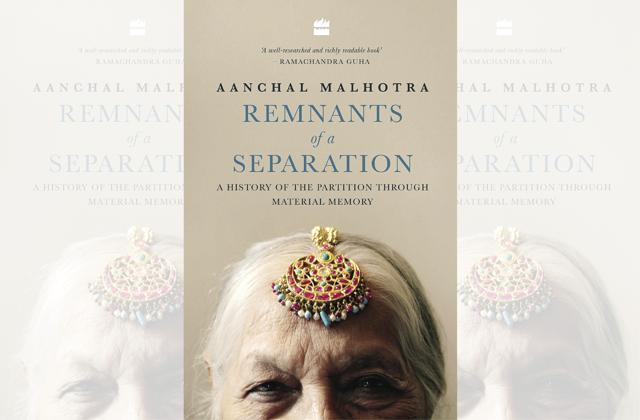
They now speak of their owners pasts and emerge as testaments to the struggle, sacrifice, pain and belonging at an unparalleled moment in history. These objects absorbed the memory of a time and place, remaining latent and undisturbed for generations. Remnants of a Separation is a unique attempt to revisit the Partition through such objects carried across the border. This led her to search for the belongings of other migrants to discover the stories hidden in them. A gaz, a ghara, a maang-tikka, a pocketknife, a peacock-shaped bracelet, and a set of kitchen utensils: these were what accompanied her great-grandparents as they fled their homes, and through them she learnt of their migration and life before the Divide. Despite being born into a family affected by the Divide, artist and oral historian Aanchal Malhotra too had thought little about the Partition until she encountered objects that had once belonged to her ancestors in an Undivided India. Generations have grown up outside the shadow of the communal killings and mass displacement that shaped the contemporary history of the subcontinent. It remembers the horrors of Partition in a way that treats its survivors - across the borders of country, class and religion - with respect, he says.Īccording to Udayan Mitra, executive publisher at HarperCollins India, "In the Language of Remembering" explores how, through successive generations, "we have carried the memories and consequences of Partition with us, and continue to do so how, through the stories that we remember and recount, the legacy of Partition remains with us and defines us.A well-researched and richly readable book RAMACHANDRA GUHA SEVENTY YEARS HAVE PASSED SINCE THE PARTITION, and a momentous event now recedes in memory. With the oldest interviewees in their 90s and the youngest just teenagers, the voices in this living archive intimately and sincerely answer questions such as: Is Partition relevant? Should we still talk about it? Does it define our relationships? Does it build our characteristics or augment our fears, without us even realising? Siddhesh Inamdar, executive editor at HarperCollins India, says the book is as much about India's future as it is about the lessons drawn from the moment of the nation's origin. It looks at how Partition memory is preserved and bequeathed, its consequences disseminated and manifested within family, community and nation.


"In the Language of Remembering", as a natural progression, reveals how Partition is not yet an event of the past and its legacy is threaded into the daily lives of subsequent generations.


 0 kommentar(er)
0 kommentar(er)
